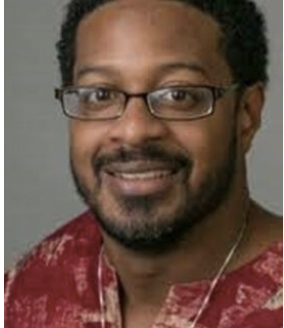Baruch Professor Spotlight: Meet Karanja Keita Carroll

CUNY
May 15, 2023
Karanja Keita Carroll is a professor in the Black and Latinx Studies department at Baruch College. He has been teaching BLS 1003: The Evolution and Expressions of Racism since he started at Baruch.
Carroll told The Ticker that his goal teaching the course is to introduce the concept of racism to students. One of his goals is to make sure students know that faculty are here to support them, especially the BIPOC faculty.
“Once students see racism and understand it, it then gives them the ability to rethink everything they have experienced,” he said. “By reflecting on previous experiences, when it was clearly racism they were dealing with, but they did not have the language for it.”
He said smaller steps to implement change should also occur on a broader level.
“The rise of Black and Latino studies is connected to the demand for curricula that spoke to the realities of Black and brown students who are in these institutions,” he said. “This history of demanding an accessible education is extremely important and is relevant today.”
According to the most recent demographic report at CUNY, in 76.9% were students of color in fall 2019 . However, the most recent workforce demographic report revealed that 47.5% of university-wide instructional staff were people of color.
“It’s relevant today when the majority of the professors in your classes don’t look like the Black and brown bodies that are sitting in the classes,” he said.
Carroll argued BLS is a necessary curriculum, especially in a larger society unable to measure the contributions that people of color have made.
“Diversity is more than the material aspects of culture,” Carroll said. “For me diversity is connected to ways of thinking, ways of being and ways of existing within the world. That is what Black and Latino Studies is trying to show students.”
He said he thinks that college should be accessible and that students should not have to pay for higher education.
“By being accessible it means that people who are trying to move up the socioeconomic ladder have the ability through their education to take steps,” Carroll said. “
When you put a price on education connected to certain institutions, it only means that people that already come from wealth have access to the ladder.”
The Adams administration has proposed budget cuts to K-12 public schools and public libraries. Rather than cutting funding, Carroll believes that more should be invested to increase public access.
“We have a political system in place that does not value education and that public funds can be used to help offset the costs of public education,” he said.“It can be done, they just don’t want to do it.
To do that means that everyone has an opportunity, and the reality of America is that they don’t want everyone to have an opportunity.”
He said there is a step-by-step process schools should follow.
“Number one, we need money to hire more full-time faculty members,” Carroll said. “The second is to make sure we hire more faculty of color. The faculty should be reflective of the diversity of the student population.”
He also said it is important that efforts occur across departments.
“There are many departments other than BLS that can become space for discussions about Black and brown people, BIPOC realities but they need to be taking place with BIPOC folks taking a lead on the discussions,” he said.
At Baruch he said educators should encourage students to look at business through the lens of race.
“Black and Latino Studies need to be anti-capitalist, anti-racist and anti-sexist,” he said. “We need to be able to critique capitalism and talk about the intersections of race and capitalism, something that needs to happen at Baruch, the business college of CUNY.”





